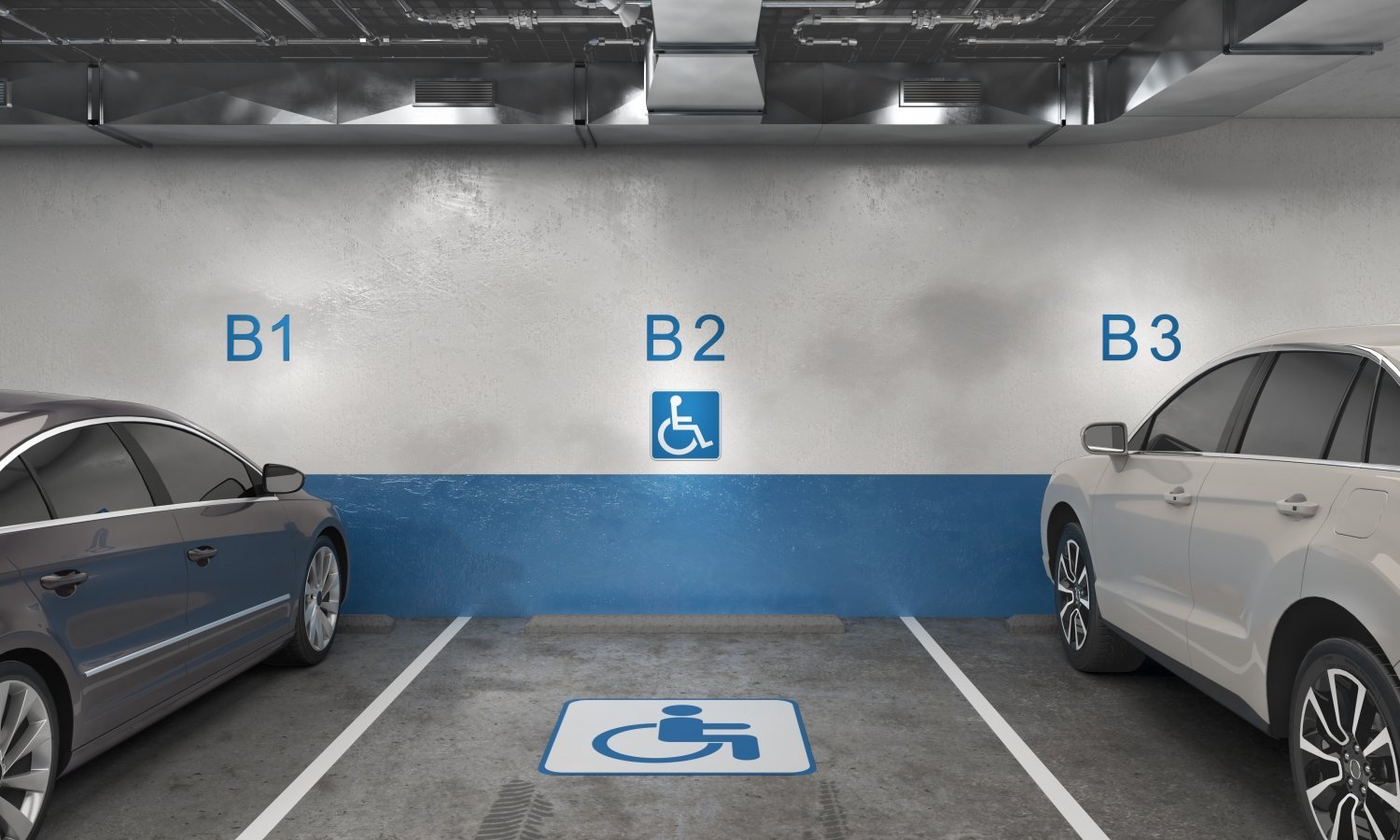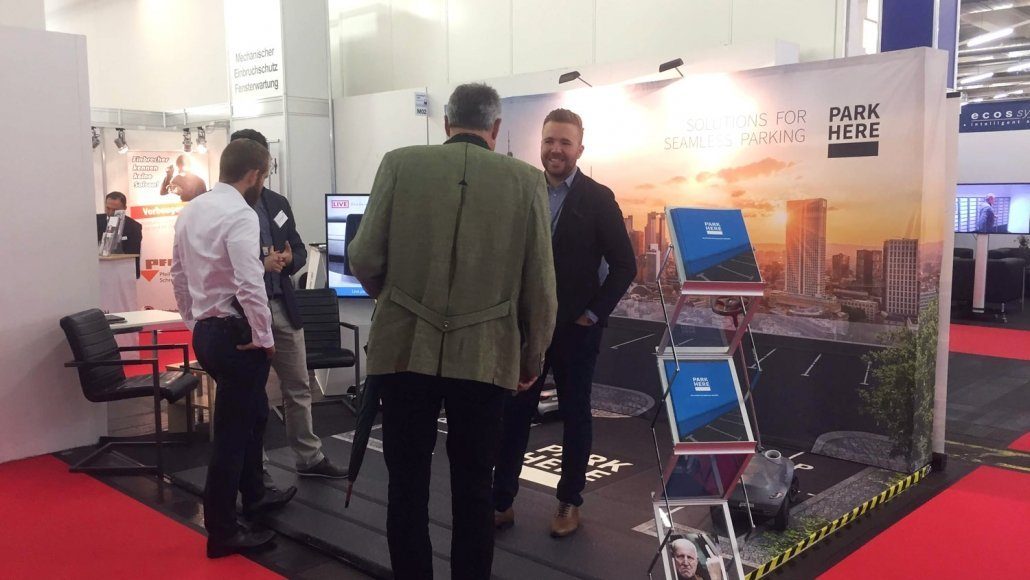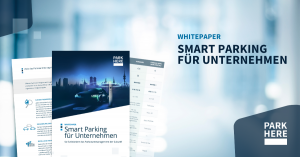Whether start-up, medium-sized business or large corporation: Every company with a central workplace today has to deal with the question “Where do the employees park?” to deal with. After all, according to a study, despite the climate debate and the mobility transition, two-thirds of all employed people still come by car to work, and the increasing shortage of parking spaces in the cities is making the parking situation increasingly precarious. Companies are therefore well advised to provide internal parking facilities. After all, the desire for a company parking space is one of the top ten most important employee needs according to surveys – even before the desire for free internet use in the workplace.
Legal Basis
The importance of parking at the workplace for employees can already be seen from the fact that lawsuits are repeatedly filed. Since the 1960s, many different facts have been negotiated in connection with company parking spaces – from the legality of parking fees to the question of whether designated women’s parking spaces constitute discrimination against male employees. The most important fundamental judgments are these:
Employees have no right to company parking spaces
In principle, no employer is obliged to provide parking spaces for its employees. Something else only applies if the workplace is practically impossible to reach by public transport . However, severely disabled employees are entitled to a disabled-friendly working environment – this may include the creation of parking facilities.

Example of disabled-friendly parking in the company parking garage
Parking fees are permitted
If an employer provides company parking spaces, he may charge money for their use. It does not matter whether the parking spaces are rented or belong to the company premises. Even if the company parking spaces were initially free of charge, fees may be charged later – however, the employer must first terminate the “company practice” of free parking ( LAG Ba-Wü, Az. 1 Sa 17/13 ).
The parking space allocation is the employer’s responsibility
The employer may in principle distribute company parking spaces as he wishes – with two important restrictions. First: The works council has a strong right of co-determination . Second: The General Equal Treatment Act (AGG) must be observed.
Involve the Works Council in Parking Space Management
According to the Works Constitution Act, everything in a company that thematically belongs to the order of the company and the behavior of the employees in the company must be coordinated with the works council (cf. § 87 BetrVG). This also includes the question of where and how employees can park their vehicles in company parking spaces. If there is a works council in the company, it should therefore be involved in all decisions relating to parking spaces. This approach is not only sensible with regard to the legal situation: Since the works council is usually the first point of contact in the event of disputes about the parking space, it should know the background to the regulations made. In addition, the works council usually has a better connection to the employees than the management – therefore, it can often communicate decisions that require explanation better.
What is important to the works council
The works council generally represents the interests of the employees vis-à-vis the company. Furthermore, it is its task to ensure equal treatment and to ensure that individual employees or groups of employees are not unreasonably disadvantaged. The latter can lead to conflicts with the management in connection with the parking space organization – for example, if managers are given preferential treatment in the allocation of parking spaces. In such a case, it is important to present the reasons for this allocation practice to the works council in a conclusive manner and to reach an agreement. In fact, companies are not fundamentally prohibited from allocating parking spaces according to the company hierarchy. However, the works council must agree with this allocation procedure.
The works council as an ally
When making decisions regarding parking regulations, every management should therefore strive to have the works council as an ally to win. If the works council and the management pull together, the company is armed against possible annoyances in the company parking lot – lawsuits by individual employees against the jointly made decisions then have only moderate chances of success. For example, a clinic that preferentially allocated parking spaces near the building to female employees was able to fend off a lawsuit from a male employee. The man felt that the preferential treatment of women was unfair and demanded a gender-independent allocation practice. He was rejected: Since the parking space allocation regulation “Women before men” had been agreed with the works council and since women are demonstrably more often victims of violent attacks, the clinic was allowed to maintain this allocation process for the employee parking spaces ( Az. 10 Sa 314/11 ).
How you can convince the works council
Assuming that companies provide parking space for employees in their company and the parking situation has increasingly deteriorated due to staff increases. Now measures are to be taken to manage the scarce parking spaces efficiently. This is how parking space managers ensure that the works council cooperates:
Create awareness of the problem
“The parking spaces are scarce, we have to do something” – such a statement is not enough to convince the works council. If parking space managers in the company want to turn the parking space organization upside down, the works council must be given plausible reasons and arguments be delivered. It should be explained to what extent the lack of parking spaces represents a business problem: The delays among employees are increasing and the operational peace is endangered by distribution struggles. Statistics on parking space utilization can also serve as a basis for argumentation here.

Meeting with the works council: A clear presentation of the problem and a well-founded chain of arguments is helpful to convince the works council
Show and evaluate possible solutions
Parking space managers should explain that there are various ways to remedy the situation. One possibility would be to encourage the formation of carpools, or to rent additional parking spaces. Another possibility is to create a new parking space management system to introduce. The possibilities for solving the parking space problem should also be evaluated, because long-term target effectiveness and consideration are important to works councils. Consultations for your parking space and digitally controlled parking space allocation systems are offered by specialized companies and start-ups such as ParkHere.
Highlight the advantages for the employees
Parking space managers should present the advantages of the preferred solutions for the workforce. This is important to the management and the works council and is a key factor when it comes to successful implementation. Therefore, they should, for example, explain the advantages of digital parking space management: A digitally controlled parking space allocation system costs less than additional parking space and also secures parking spaces for more employees – not just those who have parking space rental agreements. This eliminates possible waiting lists. In addition, parking spaces that are not needed can be allocated elsewhere if employees are on vacation or on further training.
Address possible concerns yourself – and eliminate them
In advance, you should consider what concerns the works council might have. Ideally, those responsible for parking space management will then address these themselves. The issue of fairness in parking space allocation is important, for example. Does the new parking space organization really benefit all employees, or would managers be preferred? The issue of data protection is also always well received by the works council: How do parking system providers, for example, deal with personal data such as scanned license plates? Ultimately, the issue of costs is also decisive: Are the costs for in-house parking still within the limits after the introduction of the new system?
In advance, the “homework” should be done: Information on the websites of the parking system providers about the modalities is just as important as employee surveys. How many employees are interested in company parking spaces? What parking tariff level is accepted? How much time do employees spend looking for parking in the morning? A confident appearance with figures, data and facts will convince the works council of the reorganization of parking space management.
Conclusion
Company parking spaces offer many advantages, both for employers and employees. In the event of a shortage of parking spaces, conflicts can arise – depending on the allocation practice. Then it is important to create remedial measures, such as the introduction of a digitally controlled parking space management system. These must then be coordinated with the works council. The purpose of this legal requirement is to ensure distribution justice. The works council should therefore not be seen as an opponent in terms of parking space organization, but as a neutral body that can help to make the right decisions and take the interests of companies and employees equally into account. The works council will normally have no objections to the introduction of remedial measures such as digital parking space management as long as they are fair, transparent and socially acceptable. A number of companies, including large corporations such as Porsche or Telefónica, have opted for this modern form of parking space organization and have had good experiences with it.
If you would like to receive regular information from ParkHere, please fill out the form and stay informed about the latest mobility topics.
We have summarized further information on the topic of Smart Parking for companies in this free white paper for you.
Sources:
statista.de – most commuters drive by car
statista.de – benefits requested by employees
all sources were accessed on 05.03.20

